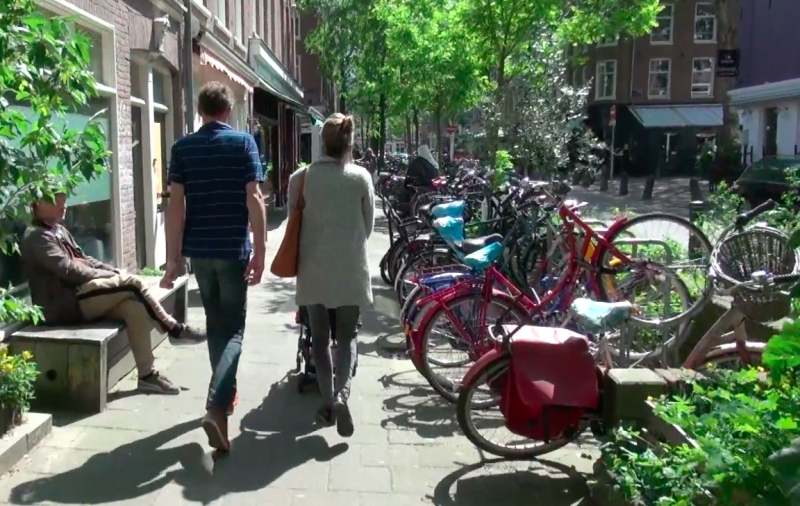On-street parking often feels like the third rail for street safety proposals. Motorists (including many politicians) have been entitled to free storage of their personal property in publicly-owned spaces for so long that any attempt to remove on-street parking can feel like an act of theft.
Which is why Amsterdam's multi-year effort to remove thousands of parking spaces from its city center – the subject of Clarence Eckerson's most recent StreetFilm – is so remarkable, and worth examining.
Zeeger Ernsting, a City Councilperson featured in the video, wants to take the program further – and his strategy to do so could be palatable even to Boston's most car-addicted politicians:
"We have a maximum number of parking permits that we give out. And I want to lower that maximum number of parking permits. People move all the time, people move out of the city and move into the city, and right now we don't have any waiting list for parking permits whatsoever... we reduce the number of parking permits that we issue, we can abolish a lot of the parking spaces as well."
The core of this idea is one that might appeal even to Boston's car owners: let everyone who currently has free on-street parking permits keep them – but make future residents of Boston pay a fair price for the privilege of parking on the street, and gradually reduce the number of permits issued as fewer people use them.
In other words, instead of battling the sense of entitlement of people who have come to rely on on-street parking, it might be considerably easier to end the entitlement for people who haven't moved here yet.
Existing car owners would benefit from less traffic and less competition for scarce on-street parking from newcomers. And over time, as those car owners move away or sell their cars, the city could gradually phase out free parking entitlements without incurring anyone's wrath.
Under this scheme, new residents would be less inclined to bring more automobiles into the city, and as in Amsterdam, the city could incrementally reduce and consolidate the city's inventory of on-street parking to make more room for bus lanes, on-street parks, and better bicycling infrastructure.

